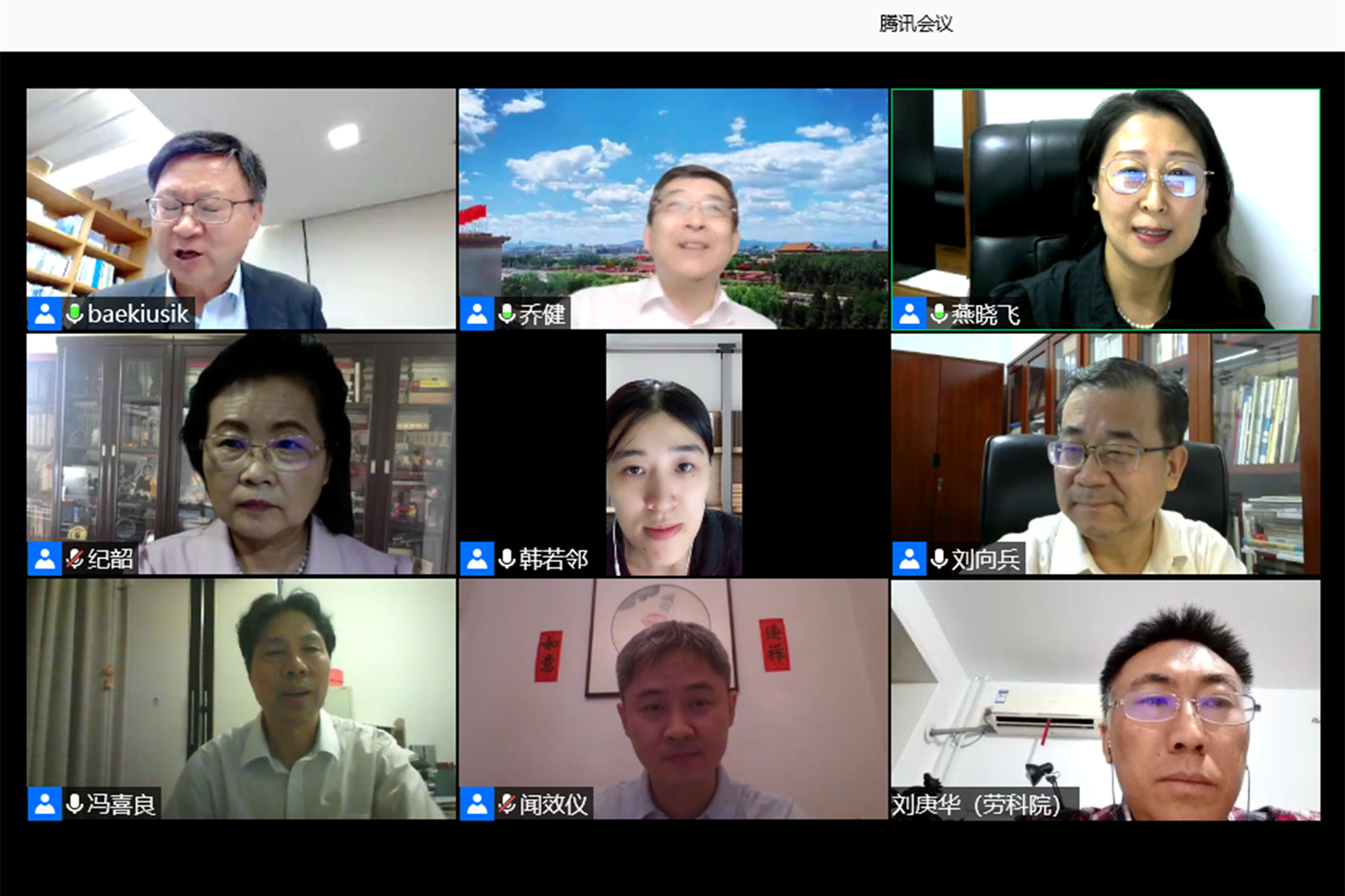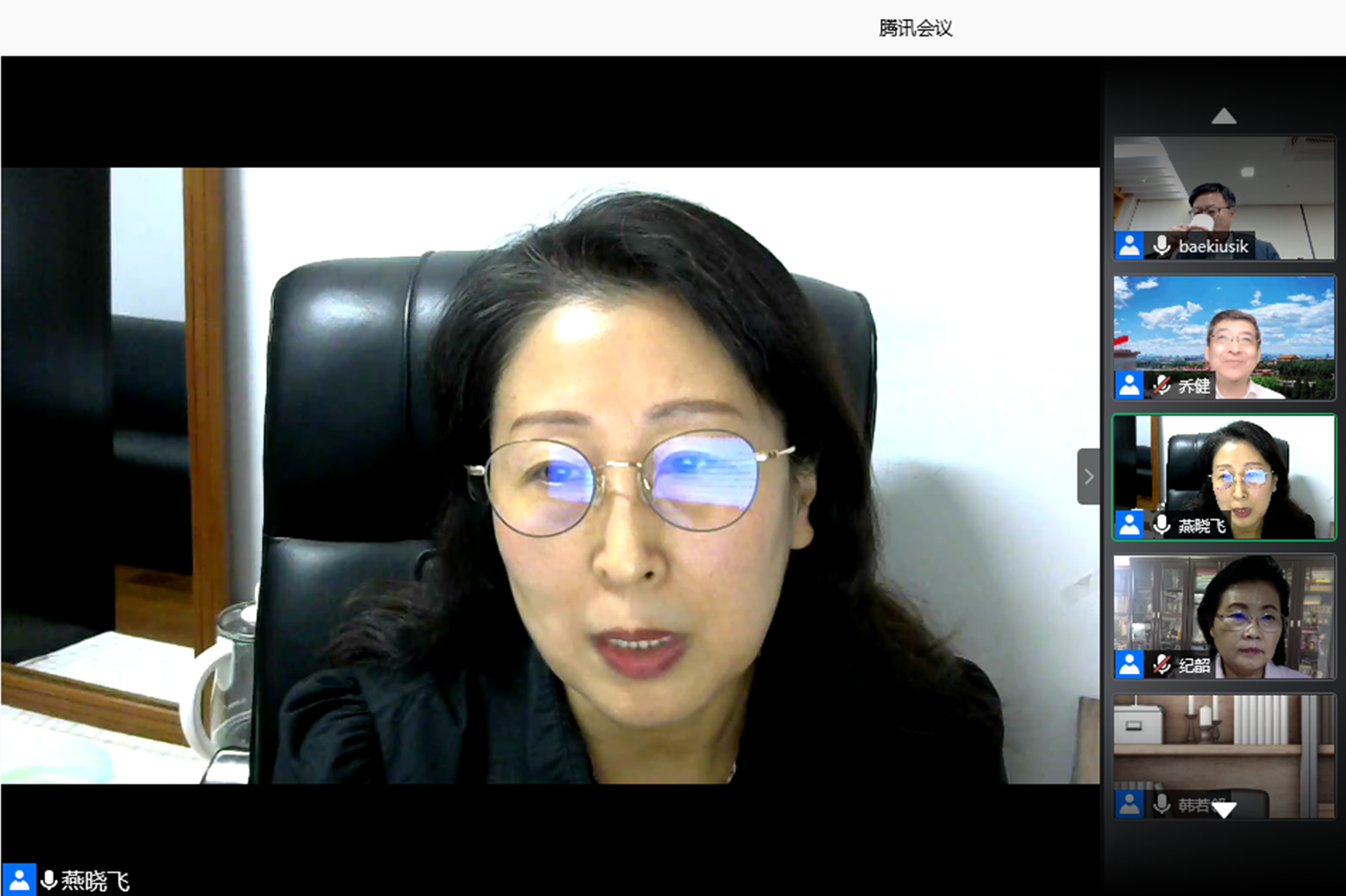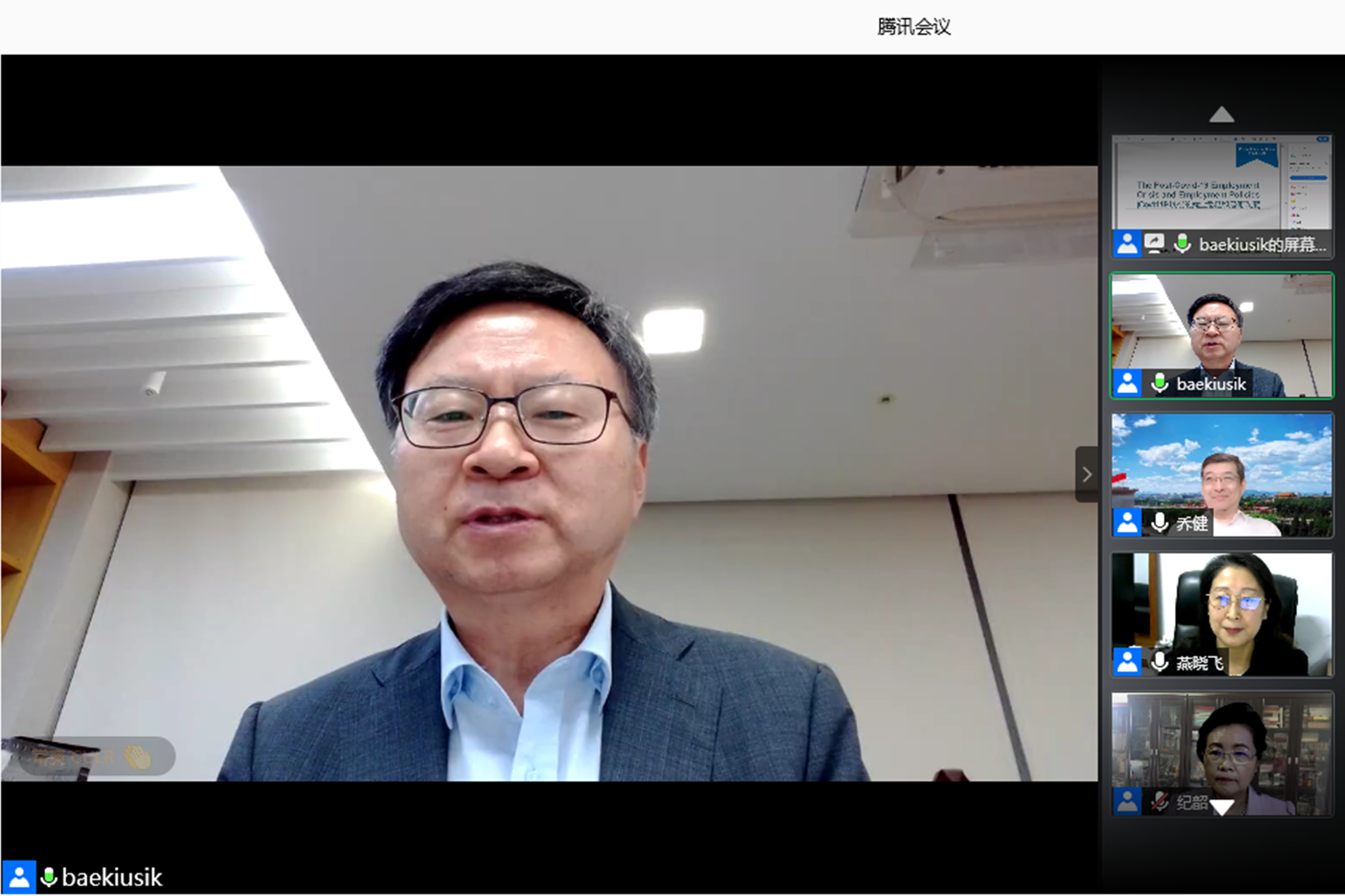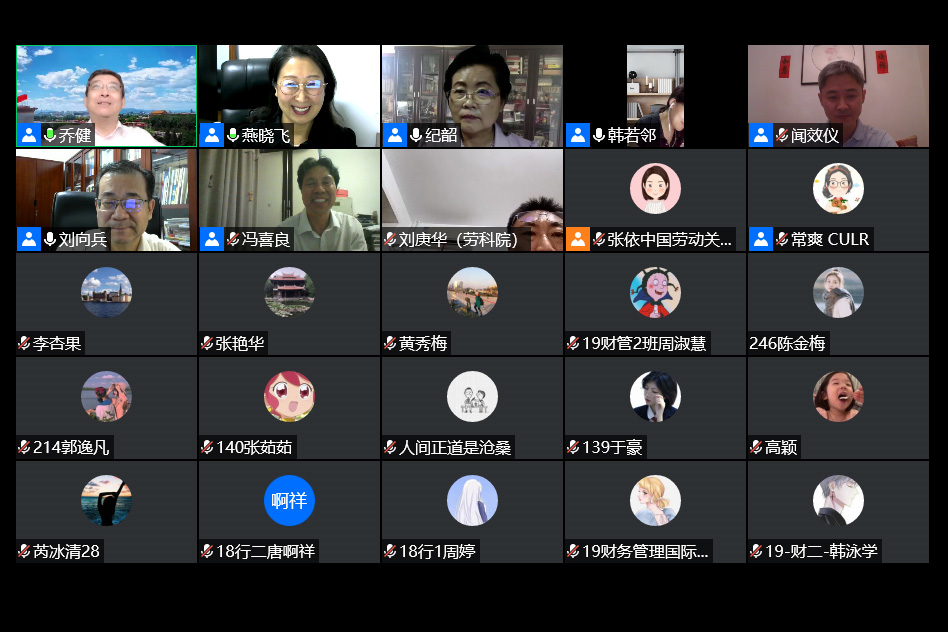On July 29th, the fourth lecture of the "2020 Global Anti-Epidemic, Return to Work and Labor Relations Lecture Series " hosted by Our University was held online, which was hosted by the university and co-organized by the Labor Relations Branch of China Human Resources Development Research Association. Professor Baekiusik, president of the Korea Institute of Labor Studies, was the keynote speaker. Mr. Liu Xiangbing, secretary of the Party Committee of our university, and Mr. Feng Xiliang, president of the Labor Relations Branch of China Human Resources Development Research Association attended the lecture. Nearly 300 experts, scholars, teachers and students from inside and outside the university listened to the online lecture. The lecture was presided over by Professor Yan Xiaofei, member of the Standing Committee of the Party Committee and director of the Scientific Research Department of our university.

In the concluding speech, Professor Yan Xiaofei pointed out that the lecture of Professor Baekiusik had rich information and detailed and accurate data, which gave us a deeper understanding on a community with a shared future for all. Professor Yan believed that the lecture provided a deep analysis of the common problems that exist in various countries under the global epidemic and of the deep level contradictions in the segmented labor market. She hoped that the two sides would continue to maintain contacts and academic exchanges and share more research results and experience in the future.

In the lecture, Professor Baekiusik introduced the current situation and expectations for global economic growth. By using charts of big data and real-time information, he made a comparative study on the performance of labor markets of each country under the epidemic and explained typical countries’ response to economic and employment crises. Also, he introduced the reality of South Korea’s employment safety net coverage policy and labor market layer in detail. He pointed out that in the post-epidemic period, there have been changes in global politics, economy, society, technology and other fields. Therefore, South Korea implemented the People-oriented New Deal, Digital New Deal, and Green New Deal, which can provide experience for China’s economic development and labor market policies in the post-epidemic period.

During the talk session, Professor Ji Shao, dean of the School of Economics and Management of our school, comprehensively analyzed the global economic trends under the epidemic and the impact on China’s economy. She believes that no country can stay immune to the epidemic. To overcome the crisis, every country must mutually support, unify and cooperate. Facing the challenges and impact on the labor market brought by the epidemic, only by providing a better environment for enterprises can we tackle the problem of employment.
In the interactive session, Liu Genghua, director of the International Division of the Chinese Academy of Labor and Social Security Sciences, expressed his appreciation for Professor Baekiusik’s wonderful lecture, and expressed the gratitude to our school for holding lectures and providing opportunities to learn from each other and exchange ideas. We hope to promote mutual visits and exchanges on this basis and make the tripartite cooperation to a new level. President Feng Xiliang and Professor Wen Xiaoyi, dean of the School of Labor Relations and Human Resources of our school, and Associate Professor Li Xingguo of the School of Public Administration respectively had an in-depth discussion with Professor BaeKiusik. Their focus included the long-term employment policy adopted by the Korean government for flexible employees and vulnerable groups in the post-epidemic period, and the impact on labor market segmentation, the significance of South Korea's encouragement of manufacturing backflow to the governance of labor relations and the role of the tripartite mechanism of labor relations in South Korea under the epidemic.

Professor BaeKiusik, is currently the dean of the Korea Labor Research Institute, and a PhD in Industrial and Commercial Studies from the University of Warwick. He once served as a public welfare committee member of the Korea Labor Relations Commission, the chief consultant of the Economic and Social Development Commission, and convenor of the Expert Group on Labor Market Institutional Reform of the Economic and Social Development Commission. He has provided policy consultation to the Korean Ministry of Employment and Labor, the administration in Seoul and other administrative agencies. In October 2019, he got the invitation to attend the 70th anniversary celebration of our university. Also, our university hired him as a visiting professor.
(Office of International Exchange and Cooperation (Hong Kong, Macao and Taiwan Office))
